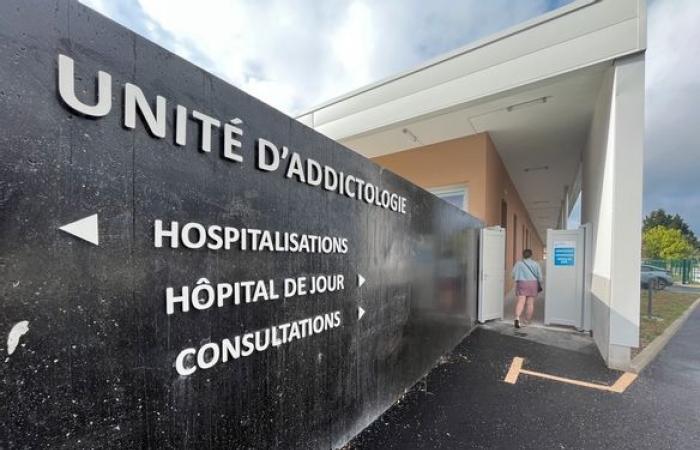The George-Sand hospital center transferred its addiction department from Chezal-Benoît to Bourges. It has been open since May 17, and required two years of work at a cost of more than 5 million euros. It is made up of a comprehensive hospitalization service and a day hospital.
Exit Chezal-Benoît, the addiction service moved to Bourges on May 17. A decision considered for a long time for several reasons: “first of all medical desertification, finding a doctor in Chezal-Benoît was increasingly complicated. There are also the nursing staff. If we had not planned to come to Bourges, today we would no longer have nurses. We were able to recruit them because they knew that we would soon be moving,” explains Yves Richou, health manager of addictology. Estelle Duchesne, addictologist, adds “there were transport problems, given that the Rémi bus line was canceled overnight. And regarding patients, we have noticed, for some time, that cases are getting worse at the somatic level. Which meant organizing taxi trips, or calling for emergency services and all that was complicated. Just like the social initiatives that are being done in Bourges.”
Access to emergency services in Bourges restricted from July 1: you will have to dial 15 before coming
18 hospital beds
Brand new, the addiction service has all the necessary equipment. “We have a relaxation room, a gym, a beauty salon, massage parlor… All this equipment allows us to hold workshops. We also have a patient café, which allows us to expose them to places where they are used to consuming. In this place, they can play games, draw…”, explains the addiction doctor.
The new service has 18 full-time hospitalization beds and 10 day-hospitalization places.
Addictology welcomes people with different addictions: alcohol, games, psychoactive substances or even eating disorders. Patients are sent by medical indication or by addiction care, support and prevention centers (CSAPA). In cities where they are not present, it is the addiction consultation and liaison units (UCLA) which take over.
The new 1,426 m² building required two years of work, and cost more than 5 million euros, with funding from the regional health agency to the tune of 1,485,000 euros.
Develop outpatient services
On average patients stay five weeks, “but we also have long hospitalizations, the main problem is the associated social problems, a patient who does not have housing for example, if we send him back to the street we know that his addiction will come back just as quickly” explains Estelle Duchesne. The merger in Bourges also made it possible to develop the day hospital “I have three patients in mind where we could not avoid complete hospitalization. We also hope to attract new audiences. I’m thinking of mothers who could come while the children are at school. »
Léa Zuzarte






